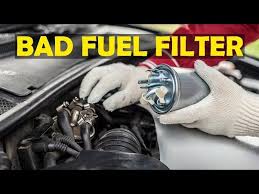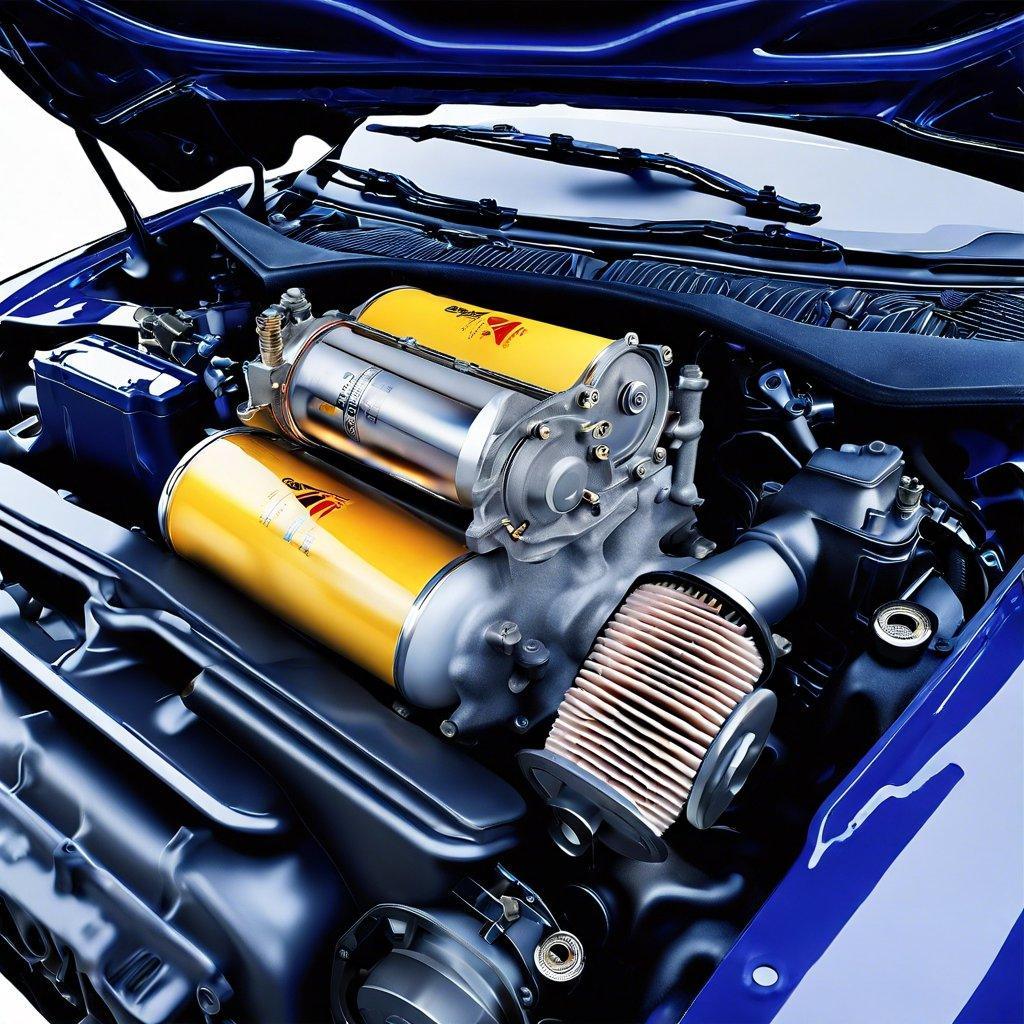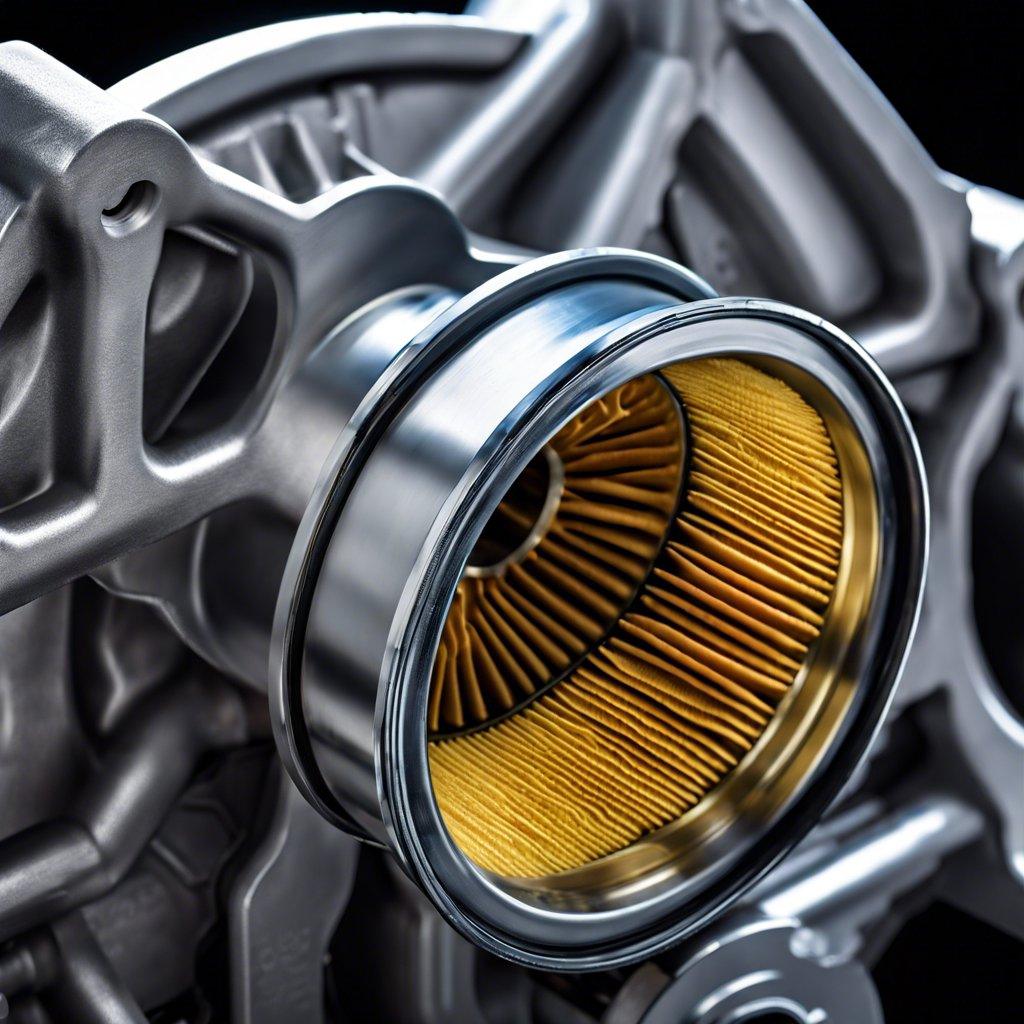Fuel Filter Woes: Can a Bad One Cause Engine Misfires?
If you’ve ever experienced engine misfires or a decrease in your car’s performance, it could be due to a faulty fuel filter. Understanding the importance of this often overlooked car component is crucial for preventing issues and keeping your vehicle running smoothly. In this blog post, we will explore the impact of a bad fuel filter on your car’s engine, the symptoms to look out for, and how to diagnose and prevent potential fuel filter problems. Join us as we dive into the relationship between the fuel filter and engine misfires, and learn how to keep your car in top shape.
Understanding The Fuel Filter
The fuel filter in a vehicle is an essential component that works to ensure the quality of the fuel being delivered to the engine. It is responsible for trapping any dirt, debris, or contaminants that may be present in the fuel, preventing them from reaching the engine and causing damage. This simple yet important part plays a crucial role in maintaining the overall performance and efficiency of the vehicle’s engine.
One common question that often arises is, “can a bad fuel filter cause a misfire?” The answer is yes, a faulty or clogged fuel filter can indeed lead to engine misfires. When the fuel filter becomes clogged, it restricts the flow of fuel to the engine, causing an imbalance in the fuel-to-air ratio. This imbalance can result in incomplete combustion, leading to misfires and a noticeable decrease in the vehicle’s performance.
It is important for vehicle owners to understand the significance of the fuel filter and its impact on the engine’s performance. Regular maintenance and timely replacement of the fuel filter can help prevent potential issues and ensure the smooth operation of the vehicle’s engine.
Impact Of A Bad Fuel Filter
When it comes to the performance and efficiency of your vehicle, the fuel filter plays a crucial role. It is responsible for preventing contaminants and debris from entering the engine, which can ultimately cause damage and affect its operation.
A bad fuel filter can cause a misfire by restricting the flow of fuel to the engine. This can lead to a lean air-fuel mixture, which in turn can result in a decrease in power, rough idling, and even stalling. Additionally, a clogged fuel filter can cause the engine to run rich, leading to poor fuel economy and increased emissions.
It is important to understand the impact of a bad fuel filter on your vehicle’s performance and take the necessary steps to diagnose and address any issues that may arise.
Symptoms Of Engine Misfires
Engine misfires can be a frustrating and potentially dangerous issue for any vehicle owner. One potential cause of engine misfires is a bad fuel filter. A fuel filter is an essential component of a vehicle’s fuel system, and when it becomes clogged or damaged, it can lead to a range of problems, including misfires. Understanding the symptoms of engine misfires and their potential connection to a faulty fuel filter is important for maintaining the overall health and performance of a vehicle.
One of the primary symptoms of engine misfires is a noticeable loss of power and acceleration. When a vehicle’s engine misfires, the combustion process is disrupted, resulting in decreased engine performance. This can manifest as a lack of power when accelerating, or a general sluggishness when driving. In some cases, the vehicle may even stall or struggle to maintain a consistent speed. If you notice a sudden and unexplained drop in power while driving, it could be a sign that your engine is misfiring, and a bad fuel filter could be to blame.
Another common indicator of engine misfires is rough idling and vibrations. When a vehicle’s engine is misfiring, it can cause the vehicle to shake or vibrate, especially when the vehicle is idling. This rough idling is often accompanied by a noticeable increase in engine noise and a feeling of instability while the vehicle is stationary. If you experience rough idling or vibrations while your vehicle is at a standstill, it may be worth investigating the possibility of a faulty fuel filter contributing to the issue.
Relationship Between Fuel Filter And Misfires
When it comes to the efficient operation of an engine, the fuel filter plays a crucial role. It is tasked with the responsibility of filtering out impurities from the fuel before it reaches the engine. However, a bad fuel filter can lead to a chain of problems, one of which is engine misfires.
Engine misfires occur when there is an imbalance in the air-fuel mixture entering the combustion chamber, causing the engine to run rough and potentially damaging vital components. So, how exactly can a bad fuel filter cause a misfire? Let’s delve into the relationship between the two.
One of the main reasons a bad fuel filter can cause a misfire is by restricting the flow of fuel to the engine. When the fuel filter becomes clogged or dirty, it impedes the normal flow of fuel, leading to an inadequate amount of fuel reaching the engine. This can result in lean air-fuel mixtures, which are known to cause misfires in the combustion chamber.
Diagnosing A Faulty Fuel Filter
One common question among car owners is, can a bad fuel filter cause a misfire? The answer is yes, a faulty fuel filter can indeed lead to engine misfires. To understand why this happens, it is important to have a good grasp of the function of the fuel filter in a vehicle’s fuel system.
First and foremost, the fuel filter plays a crucial role in ensuring that only clean fuel reaches the engine. Over time, the filter can become clogged with dirt, debris, and other contaminants, leading to a restricted flow of fuel. This can result in an insufficient amount of fuel reaching the engine, which in turn can cause misfires.
Furthermore, a clogged fuel filter can also put additional strain on other components of the fuel system, such as the fuel pump. This can ultimately lead to more serious issues with the engine’s performance and overall functionality.
Preventing Fuel Filter Woes
One of the most crucial components of a vehicle’s fuel system is the fuel filter. Its main function is to prevent dirt, rust, and other impurities from entering the engine. Over time, a fuel filter can become clogged, leading to a host of performance issues and potential damage to the engine. Understanding how to prevent fuel filter problems is essential for ensuring the longevity and efficiency of your vehicle.
Regular maintenance is essential to prevent fuel filter woes. Keeping a close eye on the condition of the filter and replacing it as recommended by the manufacturer can help to avoid potential misfires and other engine performance issues. It’s also important to use high-quality fuel, as lower-grade gasoline can contribute to filter clogging and other problems.
Another way to prevent fuel filter problems is to avoid running the vehicle with a low fuel level, as this can cause the filter to become exposed to contaminants and debris that would normally be filtered out when the tank is full. Additionally, avoiding rough handling of the vehicle can prevent damage to the fuel filter and other components of the fuel system.
Frequently Asked Questions
What is the impact of a bad fuel filter on an engine?
A bad fuel filter can restrict the flow of fuel to the engine, leading to issues such as engine misfires, stalling, and loss of power.
What are the symptoms of engine misfires related to a faulty fuel filter?
Symptoms of engine misfires linked to a faulty fuel filter include rough idling, hesitation during acceleration, and a decrease in fuel efficiency.
How does a fuel filter contribute to engine misfires?
A clogged or dirty fuel filter can restrict the flow of fuel to the engine, leading to a lean fuel mixture and causing engine misfires.
How can a faulty fuel filter be diagnosed?
A faulty fuel filter can be diagnosed by performing a pressure test on the fuel system, checking for fuel flow, and inspecting the filter for clogs or debris.
What are some preventive measures for fuel filter issues?
To prevent fuel filter issues, it is important to regularly replace the fuel filter as part of routine maintenance, use quality fuel, and avoid running the fuel tank low.
What is the relationship between a clean fuel filter and engine performance?
A clean fuel filter allows for proper fuel flow to the engine, leading to improved engine performance, smoother acceleration, and better fuel efficiency.
What are the common causes of a clogged fuel filter?
Common causes of a clogged fuel filter include debris from the fuel tank, buildup of dirt and grime, and the accumulation of water in the fuel system.
What is the impact of a bad fuel filter on an engine?
A bad fuel filter can restrict the flow of fuel to the engine, leading to issues such as engine misfires, stalling, and loss of power.
Symptoms of engine misfires linked to a faulty fuel filter include rough idling, hesitation during acceleration, and a decrease in fuel efficiency.
How does a fuel filter contribute to engine misfires?
A clogged or dirty fuel filter can restrict the flow of fuel to the engine, leading to a lean fuel mixture and causing engine misfires.
How can a faulty fuel filter be diagnosed?
A faulty fuel filter can be diagnosed by performing a pressure test on the fuel system, checking for fuel flow, and inspecting the filter for clogs or debris.
What are some preventive measures for fuel filter issues?
To prevent fuel filter issues, it is important to regularly replace the fuel filter as part of routine maintenance, use quality fuel, and avoid running the fuel tank low.
What is the relationship between a clean fuel filter and engine performance?
A clean fuel filter allows for proper fuel flow to the engine, leading to improved engine performance, smoother acceleration, and better fuel efficiency.
What are the common causes of a clogged fuel filter?
Common causes of a clogged fuel filter include debris from the fuel tank, buildup of dirt and grime, and the accumulation of water in the fuel system.




Post Comment